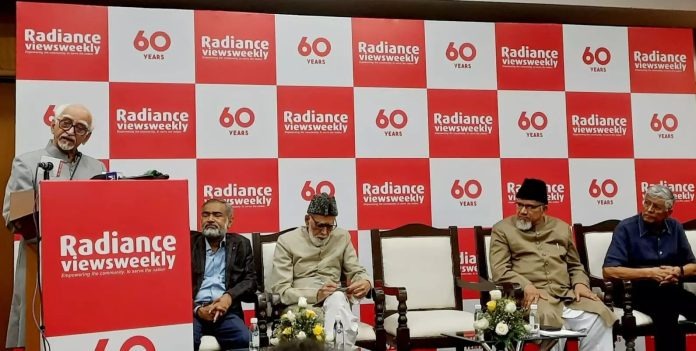
Syed Khalique Ahmed
NEW DELHI—Former vice-president Mohammad Hamid Ansari has said that religious minorities in India seek “identity and security, education and empowerment, equitable share in the largesse of the state and a fair share in decision making.”
He made these comments while delivering his keynote address on the theme of “Media and Minorities” at a function organized by Radiance Viewsweekly at India International Centre here on Monday.
The function was organized to mark the 60th year of the weekly’s foundation. Radiance was banned with the imposition of the national Emergency in 1975 and its chief editor Yusuf Siddiqui and Assistant Editor Ausaf Saied Vasfi were arrested.
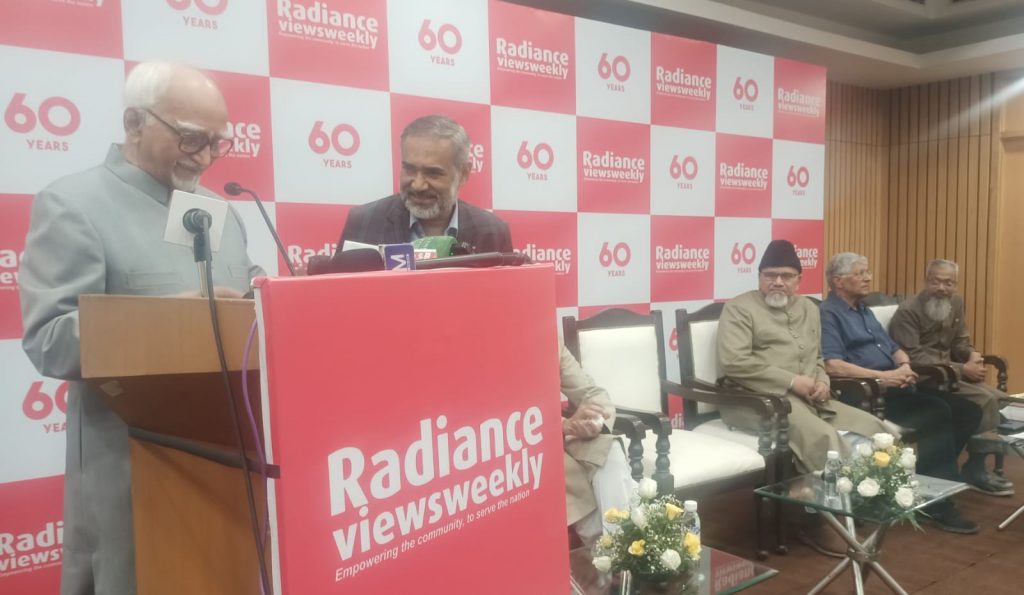
Stating that “each of this is a right and has to be dispensed without discrimination”, he said that “this is true in a good measure of the Muslims who constitute 14.2 percent of the population and now number over 200 million.”
However, in the same breath, Mr Ansari, quoting from a recent editorial comment, pointed out that “India is witnessing the progressive normalization of minority baiting,” meaning that anti-Muslim sentiments were being intentionally encouraged by a group to get a political advantage. And this is happening with regard to Muslim minorities despite the official claim that “we are a democratic polity with a strong commitment to the law.”
Drawing attention to psychological and physical insecurity that developed among Muslims following the developments in 1947, he said that efforts were made to overcome these insecurities but more needs to be done on this aspect. He referred to the Sachar Committee Report of 2006 and the Kundu Report of September 2014 for the uplift of the Muslim community. However, the Muslim minority’s problems, he says, remain unsolved despite these efforts.
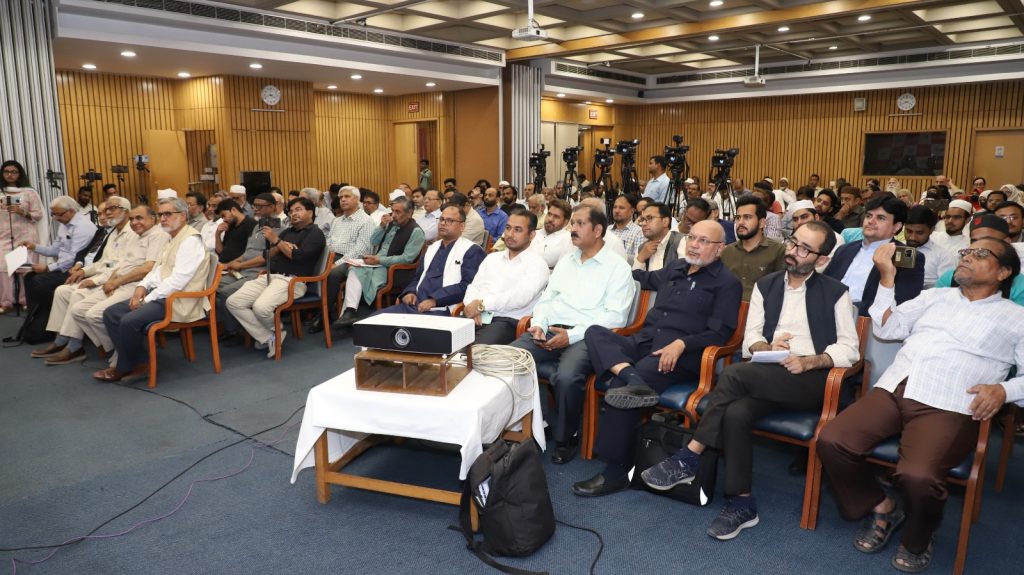
Referring to one of his friends advising him to work “to abolish the distinction between majority and minority”, the former vice-president said that conceptually it was possible but less so in real life. In this context, he said that the Constituent Assembly set up a sub-committee on minorities in 1946. In its final report, the sub-committee voted against separate communal reservations. The then Congress leader Ajit Prasad Jain on November 22, 1949, said the sub-committee report had made it clear that the issue of minority had ceased to exist now. Sardar Patel on November 25 said that “in the interest of laying down real and genuine foundations of a secular state in the country, nothing was better for the minorities than to trust the goodsense and sense of fairness of the majority, and to place confidence in them. Likewise, the majority must think of what minorities felt.”
Mr Ansari said that Sardar Patel expressed the fervent hope that in the long run, “it would be in the interest of all to forget that there is anything like majority or minority in this country and that in India there is only one community.”
In his witty style, the former VP said, “Three-quarters of a century later, history makes its own judgment on intentions and reality.”
And Mr Ansari is not wrong in his remarks as India is facing a majoritarian nationalism. “This situation is aggravated manifold when majoritarianism is accompanied by an ideological superstructure designated as Hindutva or Hindu nationalism. It is described as an ideology advocating a movement seeking to establish the hegemony of Hindus and Hinduism within India. It is promoted through a sense of vulnerability in the public, facilitated through ‘tentacular organizations’ having strong affinities with the caste system”, he remarked. He said social historian Badri Narayan has described this as the “Republic of Hindutva.”
Former BBC journalist Satish Jacob, while speaking on Media and Indian Muslims, said that not only Muslims but the Media too is facing danger and threats.
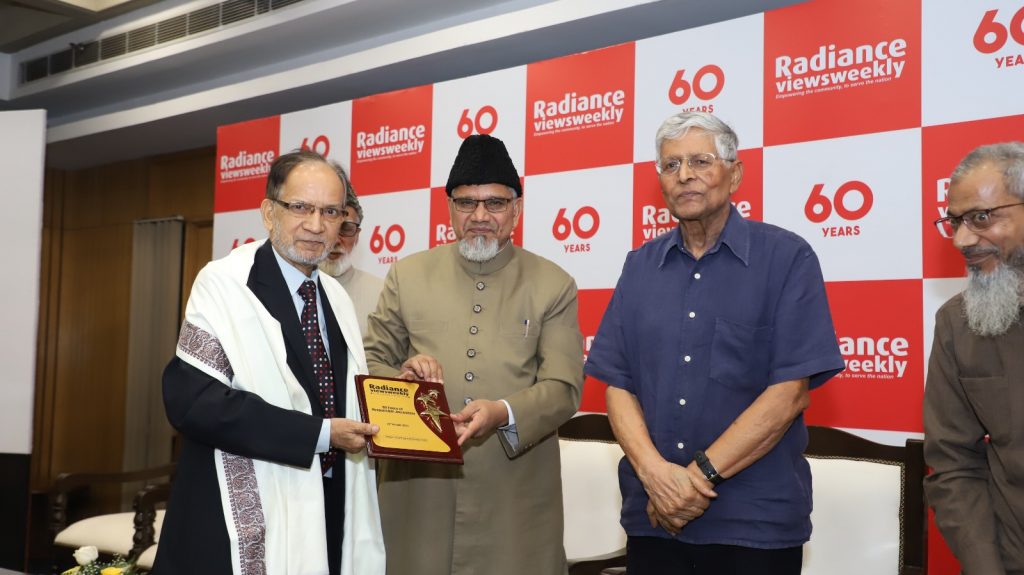
Professor Salim Engineer, Chairman of the Board of Islamic Publications in his presidential address said, “In the last 60 years Radiance has tried to become the voice of the voiceless, downtrodden, deprived and oppressed people and serving the Indian society. Radiance has been raising voice for justice, truth, and Muslims and other minorities but also tribals, and other weaker sections.”
Earlier, Ejaz Ahmed Aslam, Editor in Chief, in his inaugural address, highlighted the journey of Radiance in the last 60 years.

A noted scholar scholar, Mr Ejaz Aslam highlighted the journalistic contributions of Radiance to the nation and society in the last six decades. A short film of 10 minutes was also shown on the occasion how Radiance covered important events in its journey spanning over six decades. Radiance is circulated in India and also overseas.
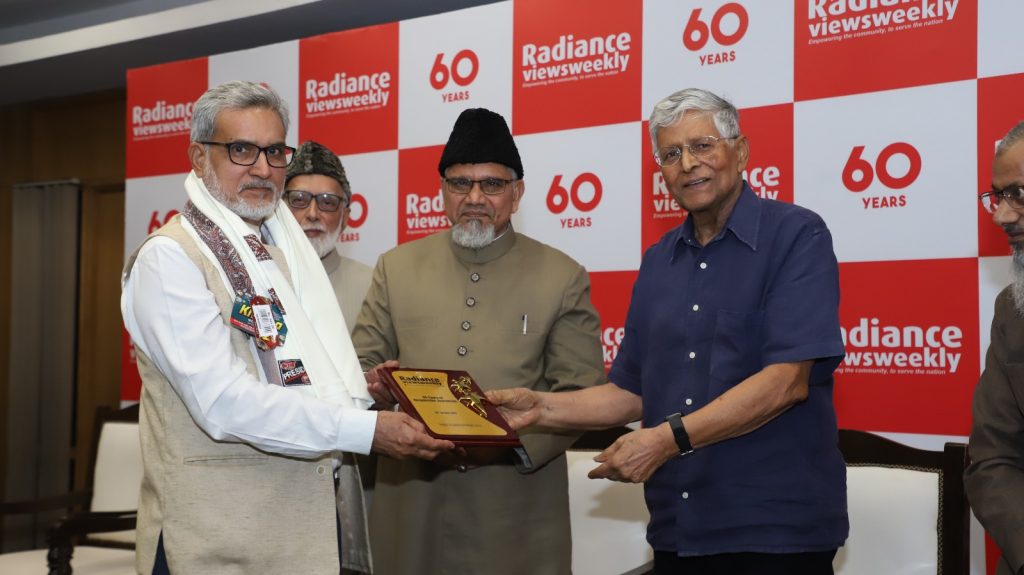
On the occasion, Syed Nooruzzaman, a former Deputy Editor of The Tribune, a Chandigarh-based English daily with editions from Delhi and other places, former Radiance Director Intizar Naeem, Syed Khalique Ahmed, a former Special Correspondent of The Indian Express, and senior journalist Abdul Bari Masoud were felicitated for their contribution to Radiance in different capacities. Veteran journalist Asif Umar Asif, who served for several years as sub-editor of Radiance was also invited to be felicitated. However, he left the programme midway due to some urgent personal development before the felicitation ceremony.
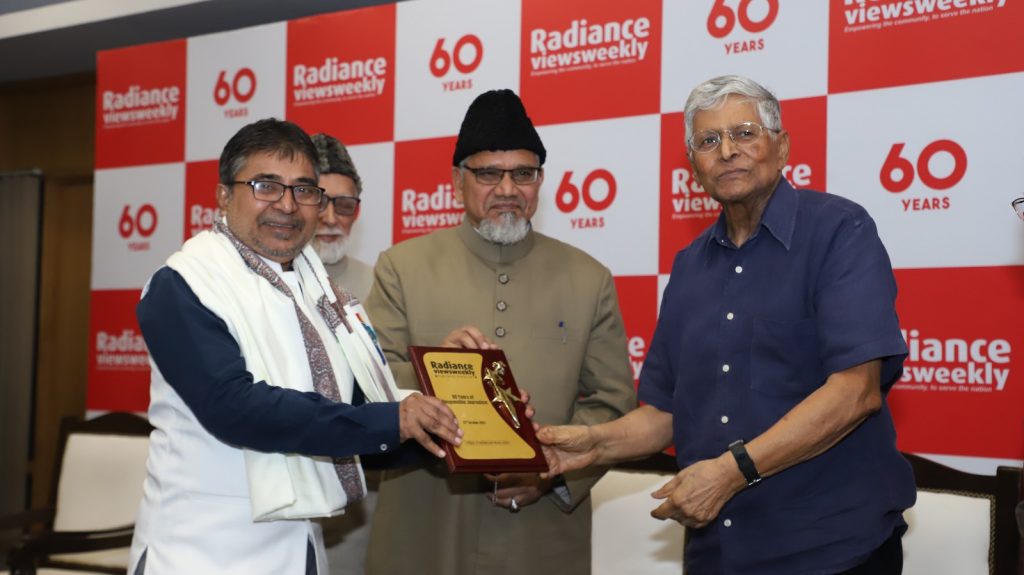
The programme was conducted by Mr Syed Tanveer Ahmed, BIP secretary and the vote of thanks was delivered by Sikandar Azam, editor of Radiance Viewsweekly.






Well done. The points you highlighted should keep guiding us all.
The report is fine. U have done your best in covering the event, Masha Allah.
A U Asif
The report is overall balanced and well done.
Syed Nooruzzaman